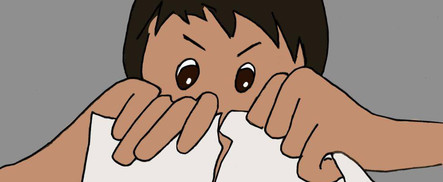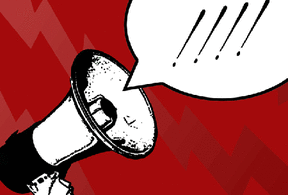Order the meal you actually want.
Stick up your hand and ask your question.
Phone and make an appointment.
Take the drive through.
Ask a stranger instead of google.
Volunteer to give the presentation.
Speak.
Be bold. Be inconvenient. Be proud.
And when they look away, stutter louder. When they giggle or stare or ignore, stutter louder still.
Your voice is beautiful, it is irreplaceable, and it deserves as much space and attention as any other voice on the planet.
There is nothing wrong with your voice. Your stutter deserves to be heard.



 RSS Feed
RSS Feed
